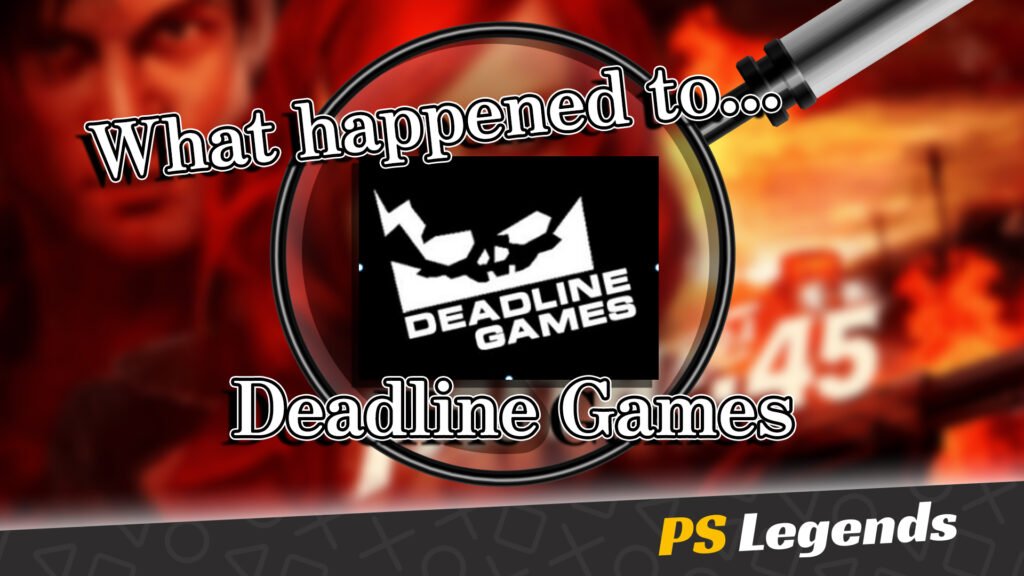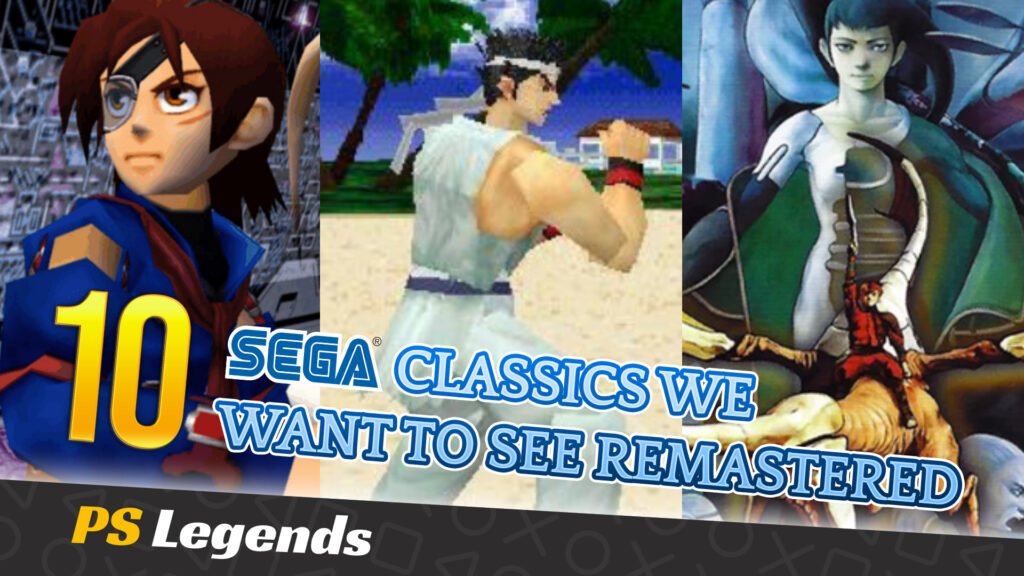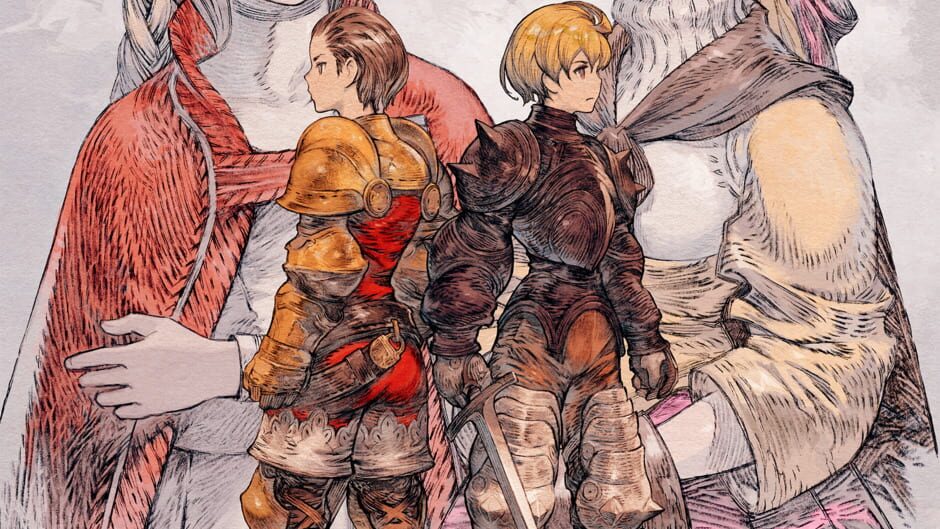Final Fantasy is often the place to look for the quiet, brooding hero protagonist. Characters like Terra Branford, Cloud Strife and Squall Leonhart certainly tick the box there, but there are exceptions. Final Fantasy IX would bring us a hero who is a chatty extrovert. He’s a nimble young outlaw-for-hire who likes the ladies, makes friends wherever he goes and has curious monkey-like qualities. There’s a lot more to Zidane than meets the eye.
On This Page
Conception
Zidane was conceived and written by Hironobu Sakaguchi, while his appearance was designed by Yoshitaka Amano and re-interpreted by Toshiyuki Itahana. Like other members of the Final Fantasy IX cast, but unlike characters of previous Final Fantasy games, Zidane was designed after the plot for the game was written. Presented as a charming, puckish character, Zidane has an outgoing, self-confident and womanising personality whose mixture of lechery and devil-may-care attitude helps put danger into perspective.
Zidane’s monkey-like characteristics are a tribute to the popular character of Eastern mythology, Sun Wukong. Sun Wukong, also known as the Monkey King, is the protagonist of Journey to the West. He is a monkey born from a stone who acquires supernatural powers through Taoist practices. At one point, he defies Hell’s attempt to collect his soul. This theme of cheating death and manipulating the transference of souls would become a key plot point in Final Fantasy IX.
The first act of the game would also see Zidane making a westward journey. On another similar note, Zidane’s otherworldly backstory also shares a resemblance to that of Goku, the main protagonist of Dragon Ball who also had elements taken from Sun Wukong, including his name ‘Son Goku’, his full name being the Japanese rendering of Sun Wukong.

Long before Final Fantasy IX, Hironobu Sakaguchi had already used the name in the first game he ever made, The Death Trap. Zidane is a European variant of the Arabic name Zeydan, meaning “increases the faith”. His name has varied in spelling according to the localisation as Yitán (Spanish), Gidan (Italian) and Djidane (French). His name is commonly mispronounced “zih-DAYNE”, but Dissidia Final Fantasy and Dissidia 012 Final Fantasy have confirmed the pronunciation as “zih-DAHN”.
All spellings of Zidane’s name are somewhat phonetically close to the French word gitane, which means “gypsy”, although this word is used for women. Vincent Zouzoulkovsky, lead translator of the French version of Final Fantasy IX, revealed in an interview the change from the official spelling “Zidane” to the French spelling “Djidane” was done to avoid misplaced association between the character and the French footballer Zinedine Zidane.
Story: Dagger In The Heart
As a young boy Zidane, unaware of his true origin, was found by Baku at the age of four, and was raised by him as a member of the Tantalus Theater Troupe in Lindblum, only remembering one thing of his past: a glowing blue light. Though a theater troupe on the surface, the group is more akin to a band of thieves and mercenaries, and Zidane was raised in their ways. His childhood was tough as Zidane endured years of physical abuse from Baku, who trained him as a rookie gangster rather than an adopted son.
Zidane became a skilled combatant who was loyal to his Tantalus brethren, seeing them as his family, though he still craved love and affection. At 13 years old, Zidane departed on a journey to seek out his origins and spent two years travelling. Although Zidane never discovered anything about his past, he came to realise that “home is where the heart is” and a place one can return to any time, and so he returned to Baku and Tantalus.
Roughly a year after Zidane’s return to Tantalus, the troupe arrives at Alexandria on a mission appointed by Lindblum’s Regent Cid to kidnap Princess Garnet in order to force a negotiation between Lindblum and the tyrannical Queen Brahne of Alexandria who is planning an invasion on the nation of Burmecia. To the group’s surprise, Garnet actually wants to escape in order to warn the other nations of Brahne’s planned invasions and co-operates with Tantalus.
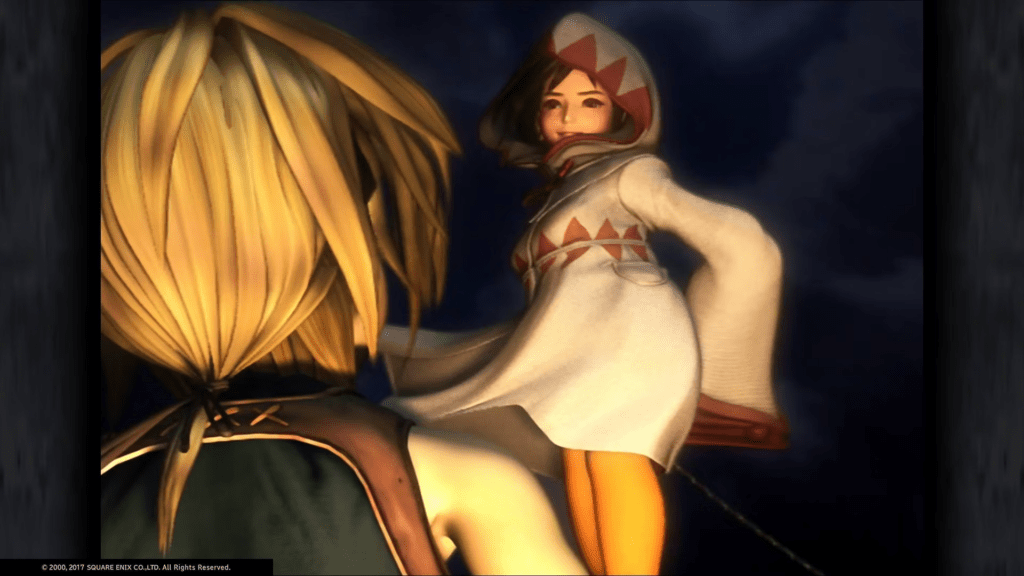
Although the mission is a success, the theater ship is damaged during the escape and crashes into the Evil Forest. Baku wants to leave the forest, but Zidane insists on finding the missing Garnet first. He beats Baku in a sparring match in order to leave Tantalus and sets out to rescue the princess, bringing the black mage Vivi and Alexandrian Knight Steiner, who both accidentally became embroiled in the kidnapping scheme with him.
After rescuing Garnet and regrouping at the town of Dali, Zidane suggests Garnet abandon the formal mannerisms she grew up with and adopt an alias to shield her identity from the villagers. Garnet, inspecting Zidane’s weapon, decides to use the name “Dagger.” The group commandeers a cargo ship to Lindblum. His mission completed and Garnet now safe with Regent Cid, Zidane finds himself missing Garnet, and so he enters the Festival of the Hunt, hoping to impress Garnet enough to go on a date with him.
Though Zidane and Garnet would soon part ways, they would also be quickly reunited as Alexandria declares war on other nations and the pair become unlikely allies. As the pair work together to help each nation combat the threat of Brahne and her mysterious arms dealer, Kuja, Zidane’s relationship with Garnet evolves from allies to friends and his feelings for her grow from lust to love. This unlikely partnership would later reveal that they both have a secret past, locked away in their memories.
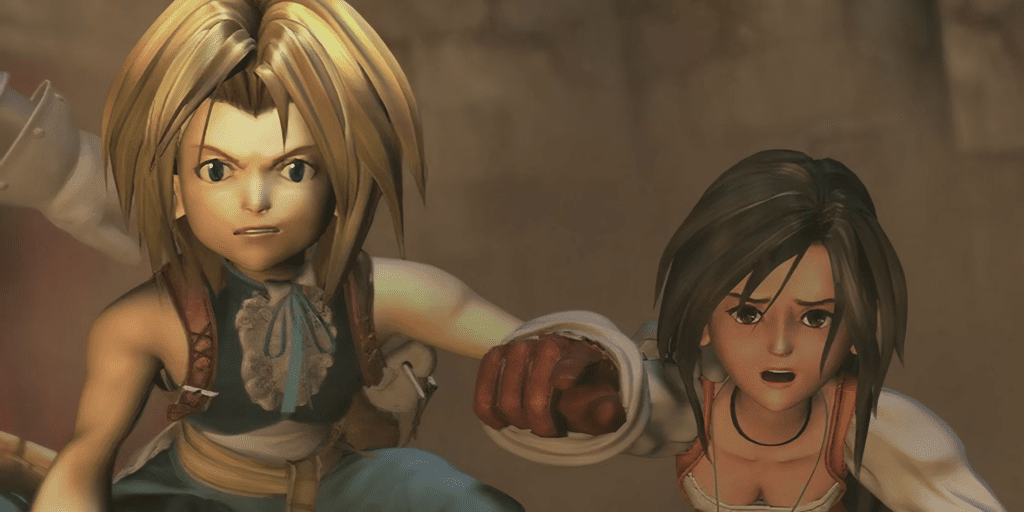
Relationships
Zidane is shown to be something of a ladies man, constantly flirting with Princess Garnet as well as other females, though Garnet is always on his mind after they meet. The more time he spends with Garnet, the more his feelings for her grow. Though he is highly confident in his abilities, Zidane hides some insecurities about his past and concealed loneliness, though he does not often express them. While usually cheerful, Zidane can get depressed, and even question his own existence.
Zidane is quite capable of being serious when the situation calls for it. He gives advice to his less experienced friends at multiple times on various aspects of life. He is generally laid back and approachable, and something of a big brother figure to the young Black Mage, Vivi. He is very patient with those who are younger and more vulnerable than him, particularly Vivi, Eiko, and later Mikoto.
Though he values friendship, he tries to keep his problems to himself and often struggles on alone. He’s far more efficient and upbeat when in the company of others, particularly his extended family in Tantalus. Zidane sees fellow Tantalus members Blank, Cinna, and Marcus as his brothers. However, Zidane knows that any ally deserves respect and will even be civil to former enemies who still dislike him, such as Steiner and Amarant.
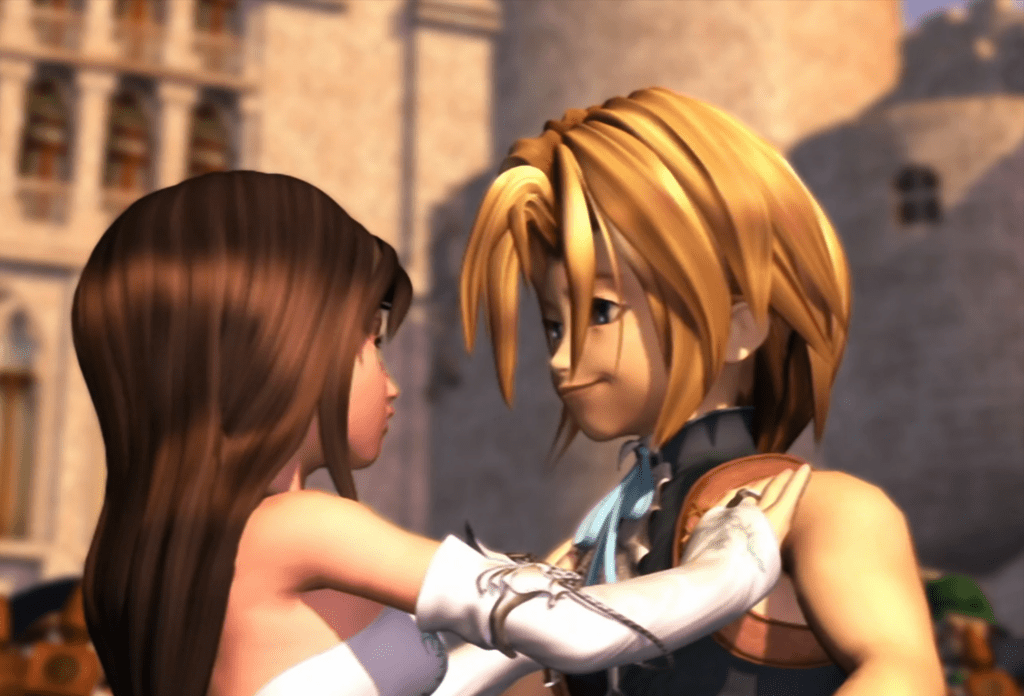
Legacy
While some sources have criticised Final Fantasy IX’s art style and the visual design of its characters, Zidane is mostly well received, particularly in Japan where he is rated as one of the most popular Final Fantasy characters in fan polls. Many sources have commented on Zidane’s characterisation being a departure from prior Final Fantasy protagonists who are known for being moody, as well as praising his blossoming relationship with Garnet.
Zidane has appeared in smaller roles in various spin-off Final Fantasy and crossover games. He appears as the protagonist hero representing Final Fantasy IX in the Dissidia series of games: Dissidia Final Fantasy, Dissidia 012, Dissidia NT, and Dissidia Opera Omnia. He is also featured in the rhythm game Theatrhythm Final Fantasy and Curtain Call as the main character representing Final Fantasy IX.
His appearances in Final Fantasy spin-off games include Final Fantasy Record Keeper, Brave Exvius, and All the Bravest. His appearances in crossover video games include Itadaki Street Portable, Monster Strike, and Puzzle and Dragons.

